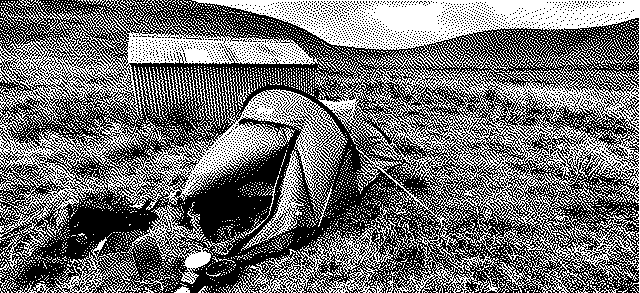Weeknote 34/2020

This week has been another good week. Let’s start with last night’s wild camping in Northumberland National Park: it was windy.
My son and I, after walking a couple of hours from where we parked the car, and carrying everything in our backs, got soaked through by the rain and wind coming at us down the valley.
Mercifully, it stopped raining when we got to the place we’d decided to pitch, but the wind continued to howl. In the end, we we erected the tent behind a cow barn and then moved it into place carefully, being very careful not to become a human kite.
The wind howled all night, but we’d brought our headphones and each put on different variations of ‘sleep’ music to get some rest. I decided to sit in the entrance of our tent from 05:30 to watch the sun rise, which was pretty magical.
After some slightly disappointing tea and toast, we packed up the tent and walked back to the car. On the way, we stopped to have a look at a memorial to the servicemen killed in the planes that came down over the Cheviots during the Second World War.
I like mini-adventures, especially given we were back home by 10:00 on Saturday, giving us most of the weekend to spend with the rest of the family!
On the work front, it was again split between the work I’m doing with Outlandish, and that which I’m involved with as part of a team for the Social Mobility Commission and Catalyst. The latter is wrapping up now and looking great now that we’ve applied the official style guide.
For Outlandish, I led a ‘Theory of Change’ session for the new Products circle. We used Miro, including for the video conferencing aspect, which worked well! I’m hoping to stick around beyond my initial engagement with them to the end of September, and indeed have drafted OKRs taking me to Christmas.
Our children were at athletics camp for three days this week, which is unremarkable in and of itself. What made a huge difference is that it was the first time since March that my wife and I have been in together by ourselves during the day. It was nice to be able to have lunch together and do the crossword as we used to.
Next week, I’m going to be writing a couple of bids for funding from Catalyst and the Ford Foundation. It’s the final week of the Social Mobility Commission work, and I’ll be continuing with my productisation activities at Outlandish.
It’s also the children’s last week before they start school a week on Wednesday. Due to the three-tier system in Northumberland, they’re both starting new schools, so I may work slightly less so I’m around for them.
Image of our tent in Northumberland National Park.
